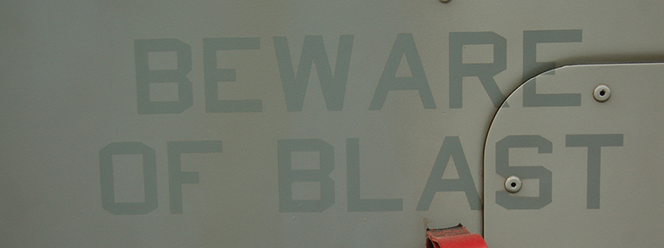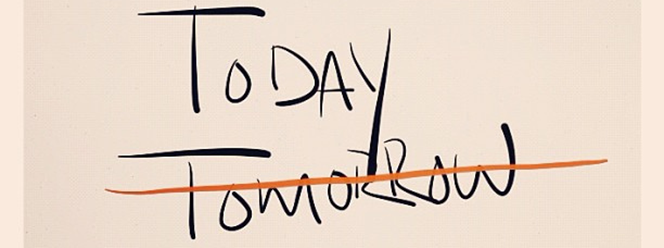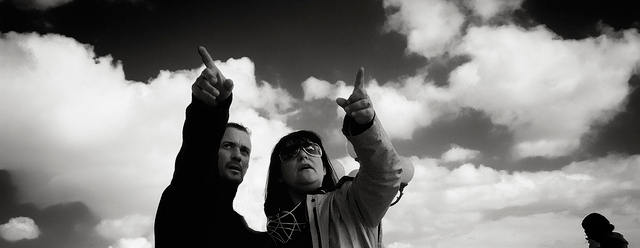
by Tara Joyce | Feb 6, 2017 | Cultural Creativity

No matter what you do or don’t do, I always have a choice in how I communicate with you. You can’t make me do or feel anything.
If I choose to not consciously communicate, I am choosing to give away my power. Whether I am attempting to feel small or big in front of you, my unconscious words are reducing me to less than I am.
If you can stay steady in you, I can’t claim your power. Despite my anger-filled desire, my words can’t possibly do this. Nothing external can.
Only you can allow something external to reduce or deflate you. Even my careless words.
If I am not being anything but respectful and loving towards you, know it’s not about you, it’s about me. It just happens to appear to be directed at you.
It’s an optical illusion I like to perform. It helps the weight of my responsibility to magically disappear for a moment and appear on you.
photo credit: Chris Devers

by Tara Joyce | Jun 15, 2016 | Cultural Creativity

We learn to articulate our personal power by saying no.
Feeling my desire to be agreeable, and my fear of rejection, I say no anyway. I learn to be more me.
There is wonder in the myriad of consequences created by responding negatively to requests. There is magic in how life moves forward, without interruption. “No” proves to be less important than we think it is.
Our agreeableness is not that valuable. Assertive and at ease, when I can say no with freedom, I can say yes with utmost certainty, sincerity, and enthusiasm. This is the space I desire to be.
Yes almost always has a cost. I can feel good paying it when I know my reasons are rooted in what I value and appreciate. I can no longer be agreeable for agreeable’s sake. The price is one I’m no longer willing to pay.
photo credit: Martin Howard

by Tara Joyce | Oct 2, 2015 | Cultural Creativity

There is a time and a place for everything, and this includes how you present yourself. For knowing how to behave properly in a variety of situations and doing so, rather than limiting you, gives you a choice in the presentation you create.
When you know your audience and manage your behaviours with them, you’re able to choose how best to get your message across in order for it to have the greatest impact. Knowing how to best present yourself connects you with your right people. For your knowledge is power—and knowing how to sell yourself is powerfully magnetizing.
To have presence, you need to be present to your audience.
If you aren’t present to your audience and how you behave with them, you’ll likely find yourself in an extended process of trial and error, unable to connect your goals with your audience’s. Rather than playing this marketing game, you can instead, by understanding and playing your roles at the appropriate moments, skillfully navigate your way through the obstacles of communication, and consistently reach your goals—and your right people.
Knowing how to present yourself is knowing how to communicate. Your ability to sell your goals through the strong presentation of them is a crucial skill—as it provides you with a choice in the roles you take, and the presence you create. When you’re present to your presence, you know the time and the place for everything in your life.
photo credit: Chris Florence

by Tara Joyce | Jun 24, 2015 | Innerpreneurship, Personal Branding

There’s always a goal. In every communication, in every expression, there is always a goal. It may not be conscious and it may not be visible, but it is there. Whenever we communicate, we do it for a reason.
In both our business communication scenarios and our personal ones, our goals design and determine what we achieve, and what we receive. Through our language and logic, our (conscious and unconscious) goals reveal themselves; and through our resulting action, these goals are realized.
When we take the space to consider our goals before we take action and communicate, we support our selves in consciously creating effective communications. For when we consider what we want to achieve and why we are communicating, we’re taking responsibility for ensuring our expressions are authentic. And that we’re consciously creating the reality we desire.
4 Conscious Communication Goals
For your next communication, consider:
- Your Information: Are you sharing essential information?
- Your Motivation: Are you inspiring action?
- Your Professionalism: Are you elevating your credibility?
- Your Brand: Are you supporting your values and value?
If you’re answer is ‘No’ to any of the above, it’s probably a good idea not to communicate until you’ve done more internal work and can answer each with a ‘Yes’. In taking this space, each time you and/or your business chooses to communicate, you’ll feel confident you’re creating a growth opportunity.
photo credit: Sergio Pani

by Tara Joyce | May 15, 2015 | Cultural Creativity

In many ways, our culture encourages the wasting of words. They’re presented not as a resource to be responsible to, but rather something to use carelessly, without consequence. Another resource we can throw around and away. Hidden behind our screens, provided with a medium to share our every fleeting thought and feeling, we’re finding this story even easier to believe.
Please don’t waste your words. They are one of your most valuable resources; and they are one of the few resources you truly own. They are inherently yours, readily available to only you, and capable of creating incredible value. You have total freedom and control over how they are employed. They are a resource whose worth needs to be carefully realized.
Your other resources will likely run out. Your clothes will wear, your toys will break, and yet your wand for creating your world — your words — will sustain. You have endless access to the power and potential of them. All the more reason they’re so hard to manage. When you have an endless supply of something, how do you support your Self in using it responsibly? It’s a tough question that needs your thoughtful consideration.
To preserve ourselves we, as humans, need to more thoughtfully manage our resources. So why not practice choosing sustainability? Choosing empathy? Choosing support? See how your world responds in return.
For your words are a resource not to be wasted. How you use them is a true reflection of who you are.
photo credit: Sam Javanrouh










